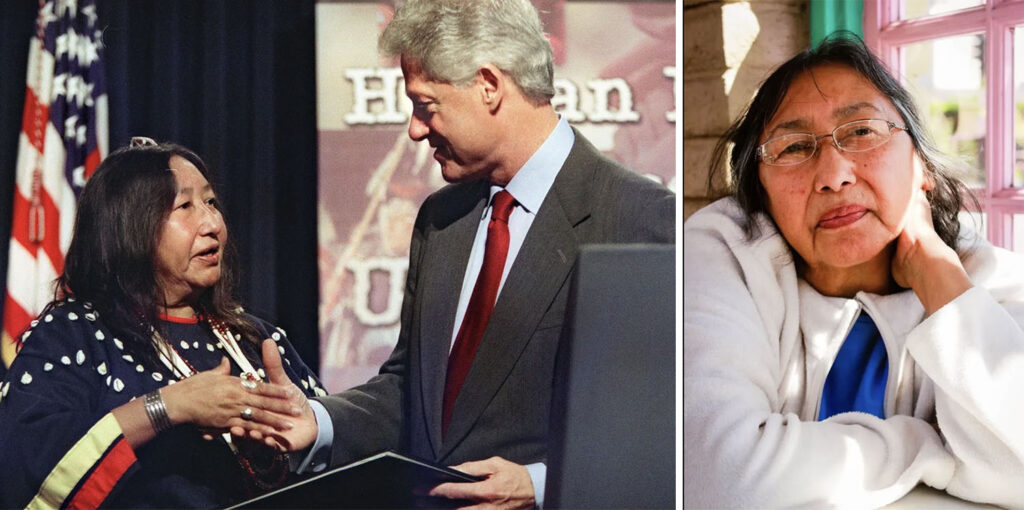
By Sophie Roback, Alliance Intern from Colorado College ‘24
Tillie Black Bear was the first Native woman to advocate on a national level to end violence against Indigenous women. She continued her work for over four decades: influencing national legislation, founding organizations such as the National Coalition Against Domestic Violence, and advocating for tribal sovereignty, according to Smithsonian Magazine. To honor her legacy, the National Indigenous Women’s Resource Center (NIWRC) declared October 1 to be Tillie Black Bear Women are Sacred Day.
Black Bear passed away in 2014 at age 67. It is important that we remember her influence on the movement as violence against Native women continues to be ignored. Lucy Simpson, the Executive Director for NIWRC explains why this day is so important, “As Indigenous peoples, and women, our story is not taught, recognized, or honored by mainstream America. This erasure from the public eye is part of the continuum of dehumanizing Native women.”
Born in 1946 as a member of the Rosebud Sioux Tribe and the Sicangu Lakota Nation, Black Bear was forced to attend a Catholic boarding school throughout her childhood where she was forbidden from practicing her spiritual beliefs and traditions. Following residential school, she earned her bachelor’s and master’s degree.
As an adult, Black Bear began to face physical abuse by her partner, throwing him out of the house after he started to beat her young daughters. She “took his belongings, tossed them in her front yard and calmly told him to leave her house.”
After facing her own abusive partner, Black Bear began to work to protect her friends as she recognized that they had no government support. “She took in the national movement that was happening to raise awareness around domestic violence and refocused it on Indian Country.” Her home became a safe house with an expansive support network and women and children always coming in and out. She became a vocal advocate and opened the first domestic violence shelter for Native women.
While finishing her degree Black Bear was asked to speak at a national symposium on domestic violence to represent Native victims. In this historic two-day symposium held by the US Commission on Civil Rights in 1978, Tillie Black Bear was the only Native woman who spoke throughout the hearings. At a time when there was a national movement politicizing the issue of domestic violence for the first time ever, Black Bear worked to raise awareness on the significant violence against Native women and girls.
Following her powerful contribution to the domestic violence hearing, Black Bear joined with others to establish the National Coalition Against Domestic Violence, as well as the South Dakota Coalition Ending Domestic Violence and Sexual Assault.
Black Bear advocated for greater tribal sovereignty in order to keep Native women safe, and played a significant role in the tribal provision added to the Violence Against Women Act which “restored tribes’ ability to prosecute non-Native defendants in Indian Country for domestic violence.”
Throughout four decades of activism, Black Bear faced constant criticism, since her work held men accountable and supported women in standing up for themselves. She reflects on her work, saying, “having spent most of my life as a woman in our resistance movement, I am so proud of our women who went beyond the shelter doors. … As tribal women, as Indigenous women, we are helping to create a safer, more humane world.”
